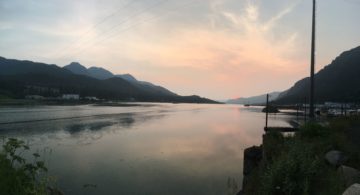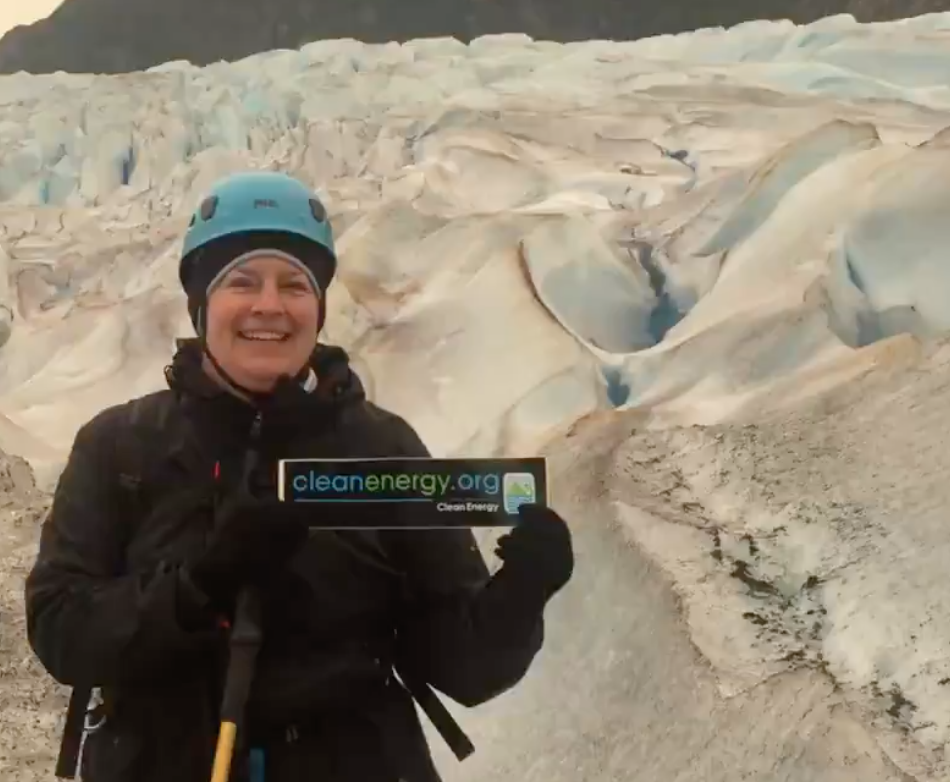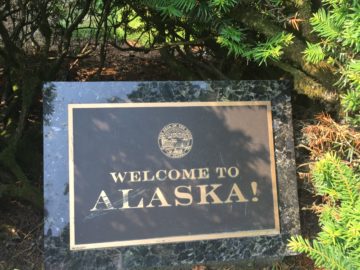I’ve never been to the Great State of Alaska so I jumped at the opportunity to visit the capital city of Juneau. I was thrilled to explore the glaciers, view the wildlife, and learn about the native cultures of the Alaskan frontier – the very things I have been working hard to protect here at SACE for the last 20 years!
Alaska has unfortunately experienced many impacts from climate change and I wanted to observe these effects and transformation for myself. My trip was at the end of June, just after the Summer Solstice – allowing us to enjoy ~18 hours of sunlight so we could pack in plenty of activities.
Beautiful scenery, amazing wildlife, remarkable culture
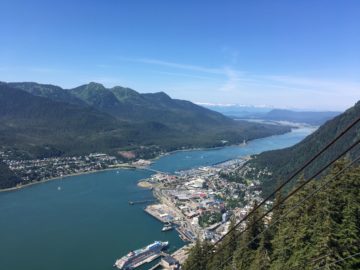
Ascending directly up Mt. Roberts via tram and then hiking even further up the mountain was exhilarating – we were rewarded with spectacular views as the hazy conditions had not yet rolled in.
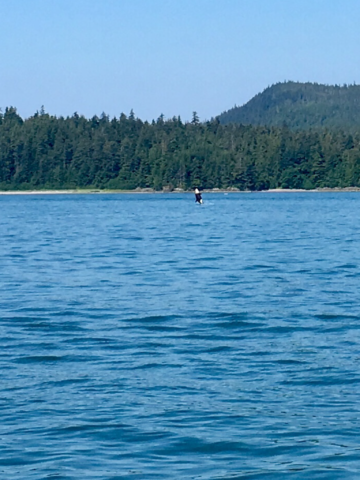
A definite highlight was getting out on the water in Auke Bay. Just as we started cruising, over a dozen orcas began frolicking all around us – it was truly amazing (and we were told, a rare sight), especially with the beautiful backdrop of mountains surrounding us.
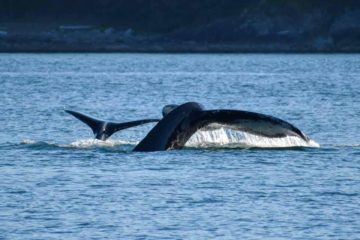
Later on we were lucky enough to witness numerous humpback whales including meeting Flame, a ~60-year old female with her ~7-month son, Bunson. We also met Sasha, the ~20-year old daughter of Flame. What a sight to see the iconic whale tails of Flame and Bunson together in one shot! Our group literally cheered and cried at the same time – these are extraordinary animals traveling from Hawaii to Alaska. And there is good news – several of the distinct populations (including some of those coming up from Hawaii) have been removed from the endangered species list. This was encouraging. We all can and are making a difference!

We also took time to visit Juneau’s amazing museums and memorials that helped us learn about and further appreciate Native Alaska and the history of this land and its people – the diverse clans and tribes that were here before explorers and eventually settlers violently up-ended their way of life and their respectful use of the land and its resources.
Glacier up close
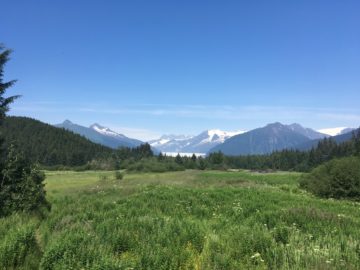
So “THE DAY” came to get up close and personal with the famous Mendenhall Glacier in our nation’s largest forest, the Tongass National Forest. We canoed a hefty distance across Mendenhall Lake to reach the glacier and strapped on all kinds of gear to traverse the icy and frankly, unworldly terrain. Given the extreme haze, the sun was an unsettling, deep red high up in the sky and the colors were muted, except for the extreme blue of the glacier’s various features. Our guides described the Mendenhall as “unhealthy” – it’s retreating at a rapid rate and what you’re seeing in my pictures will not be there in ~50 years unless serious changes occur (here are historical “then” and “now” pictures to put the dramatic retreat further into perspective).
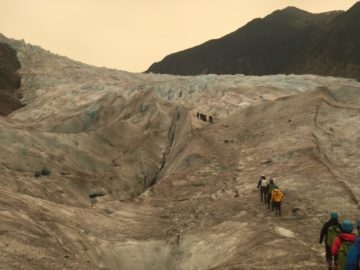
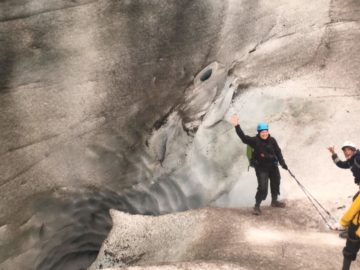
We CAN make a difference!
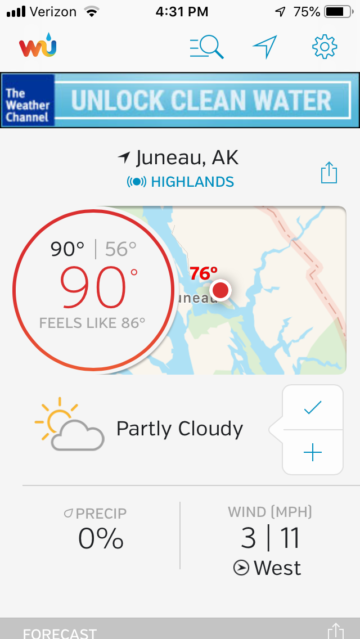 Though I packed fleece jackets, gloves, hats, and rain gear, a heat wave coupled with wildfires and a drought made for a very hot, smoky/hazy atmosphere. It hit 90F while there – stifling for locals and businesses given very few have air conditioning. Globally, it was the hottest June on record.
Though I packed fleece jackets, gloves, hats, and rain gear, a heat wave coupled with wildfires and a drought made for a very hot, smoky/hazy atmosphere. It hit 90F while there – stifling for locals and businesses given very few have air conditioning. Globally, it was the hottest June on record.
Clearly, the impacts of climate change affect aren’t just impacting the environment and wildlife. Human health suffers too. Just days after I left Juneau, an “air emergency” was declared because of the very poor air quality – being active outdoors was not recommended. Can you imagine living in these conditions in the Alaskan Frontier?! Can you imagine the disappointment that many experienced visiting Alaska when they couldn’t see through the pollution haze to view the amazing vistas and to be warned, “Don’t go on a hike because it’s unhealthy outside?”
Your support of this important work really matters
Together, we are making a difference in this global fight – by starting in our backyards here in the Southeast to advance truly clean energy choices that reduce global warming pollution and protect our communities and the communities of Alaska and beyond. Please support our efforts today!
